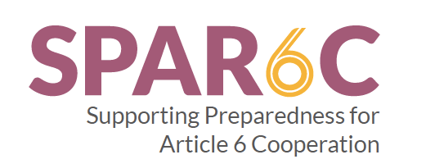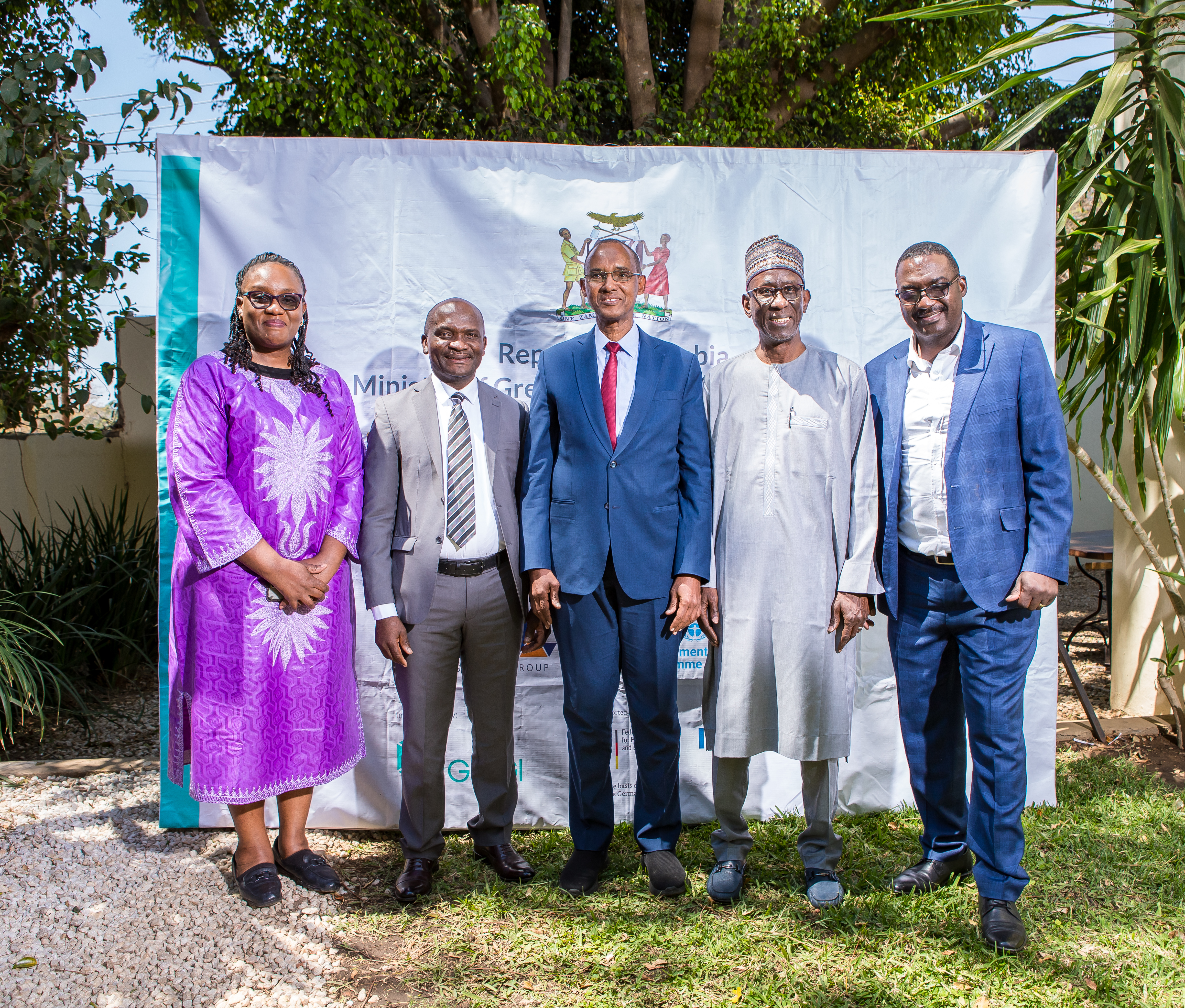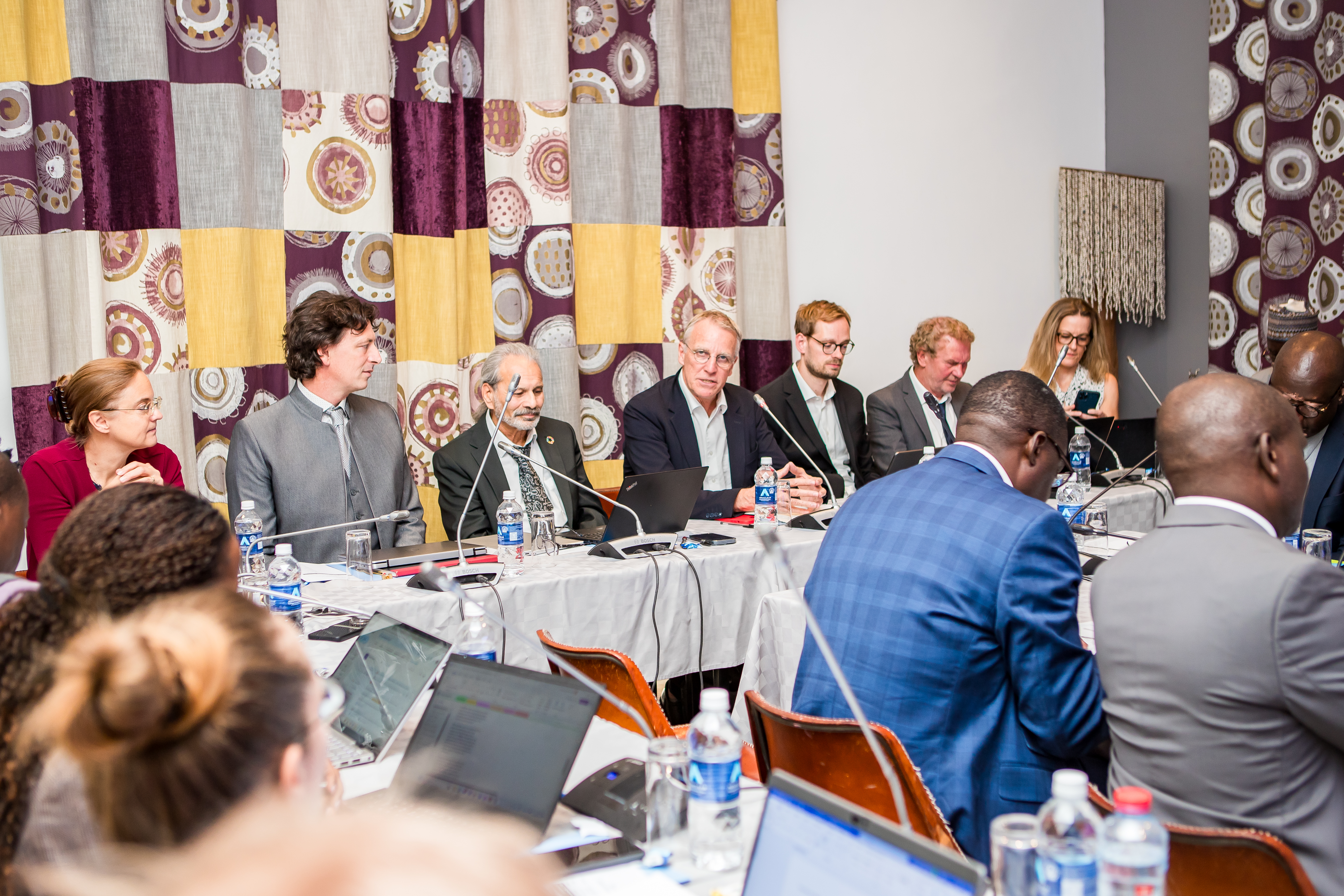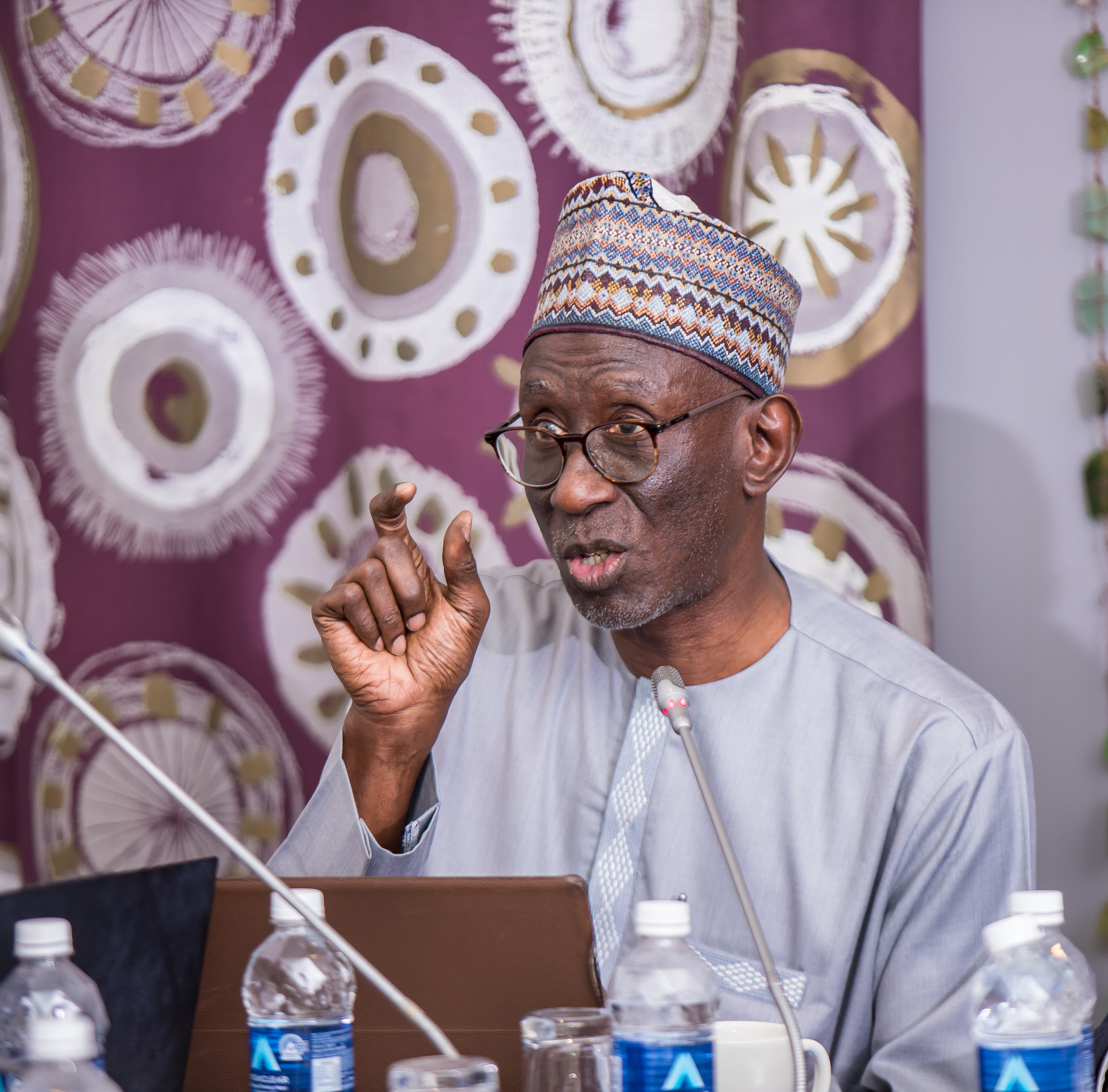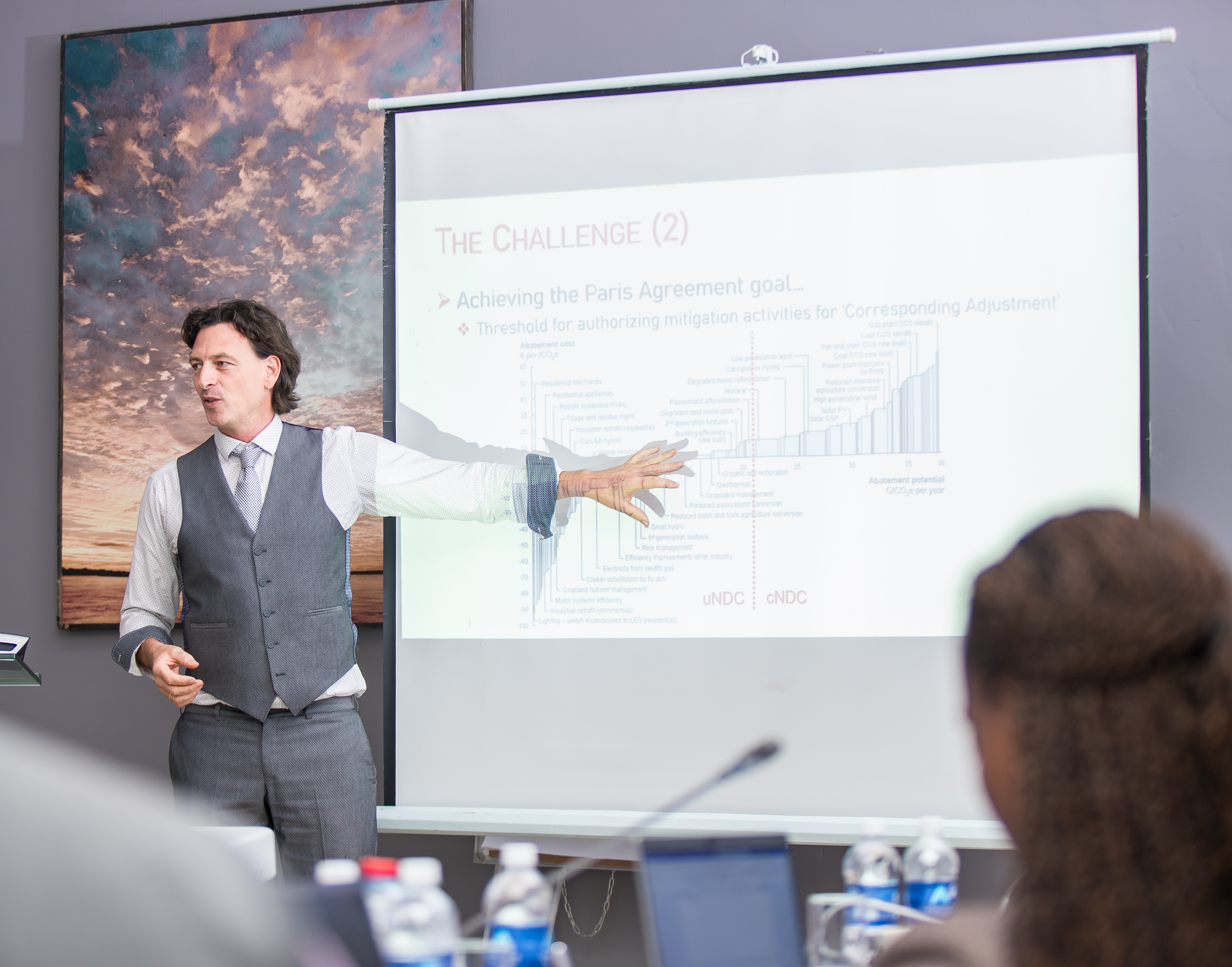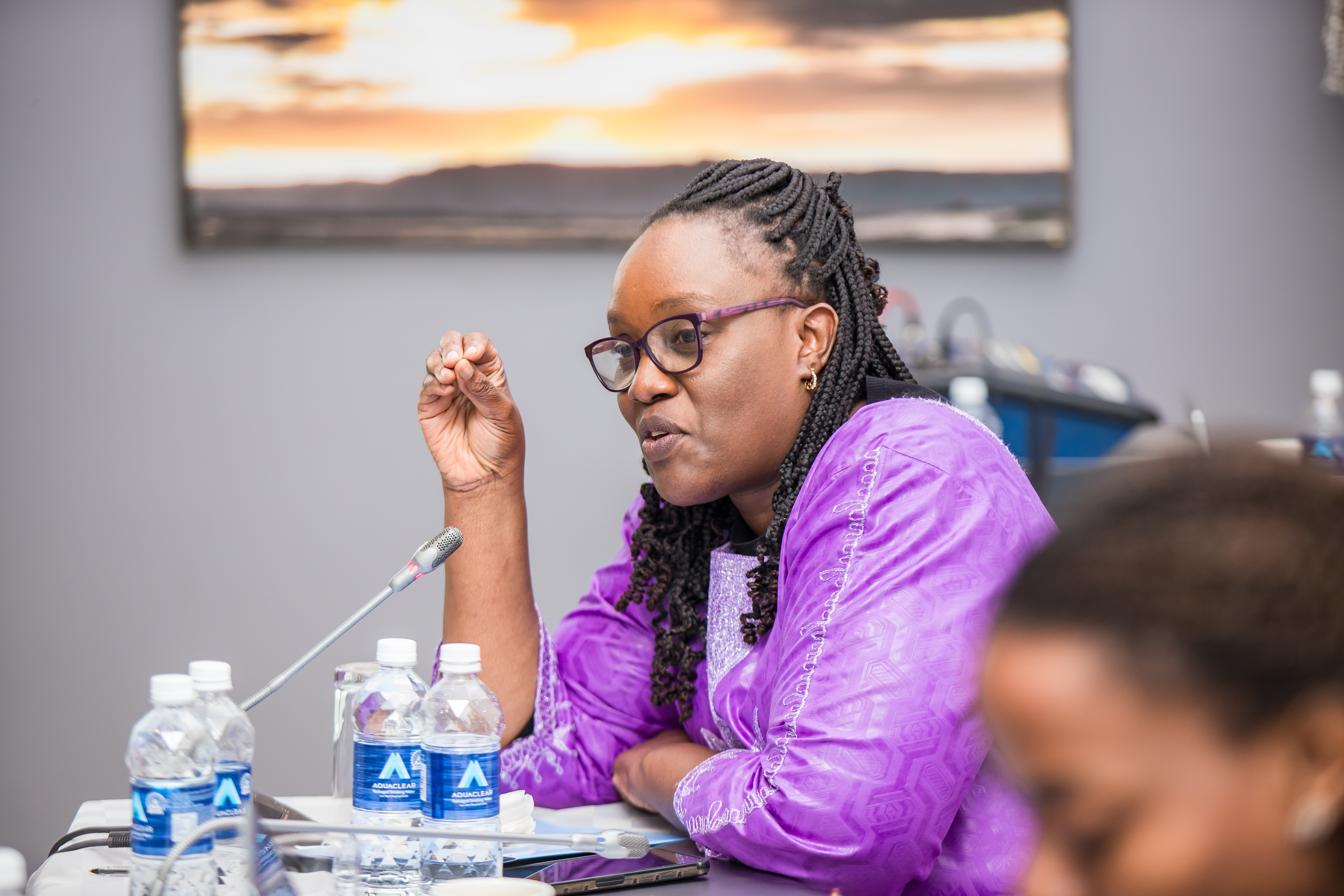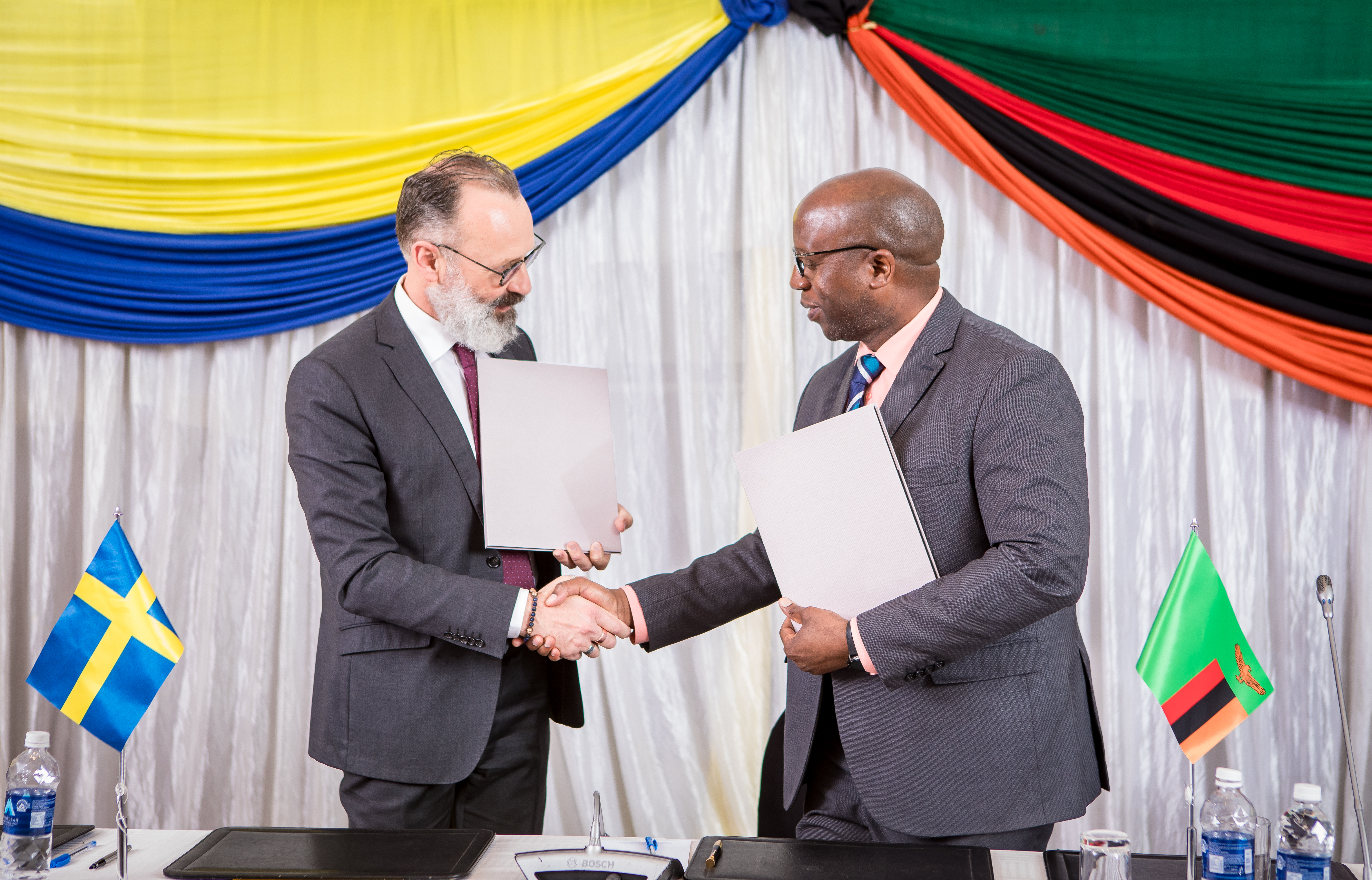Zambia’s Ministry of Green Economy and Environment (MGEE) chaired the first regional High Level Policy Dialogue on Carbon Markets in Sub-Saharan Africa, to discuss the role of carbon markets in the achievement of Nationally Determined Contributions (NDCs) and how to further catalyze global climate action.
As Zambia continues to pave the way in Article 6 implementation, the nation’s significant progress has garnered international attention and elevated the conversation to a broader arena of global collaboration on climate change. This dialogue is more than a regional gathering; it represents a pivotal moment where Zambia’s significant steps have become a catalyst for transformational change for other countries, setting the stage for a driving a shift in collaboration toward more impactful Article 6 outcomes to achieve sustainable development goals.
The knowledge-sharing at this event underscores Zambia’s efforts that are not just about operational guidelines, but about change that has the ability to unlock climate finance and foster large-scale, low-carbon development.
Piloting carbon markets for emissions reductions under SPAR6C
This event was supported by the Supporting Preparedness for Article 6 Cooperation (SPAR6C) Programme, led by the Global Green Growth Institute (GGGI) with GFA Consulting Group and UNEP Copenhagen Climate Centre as the leading delivery partners in Zambia.
SPAR6C aims to catalyze investment in greenhouse emissions reductions by supporting its implementation countries to enable transactions of Internationally Transferred Mitigation Outcomes (ITMOs) as allowed under Article 6 of the Paris Agreement.
Over the past two years, Zambia has progressed in the development of its carbon market framework and is in the process of developing pilot mitigation activities with the support of SPAR6C.
High-level policy
The high-level policy dialogue brought together delegates from MGEE, the German Ministry of Economic Affairs and Climate Change, the German Embassy in Zambia, GGGI, Deutsche Gesellschaft für Internationale Zusammenarbeit GmbH (GIZ) as well as senior Government officials and Climate Change focal points from Kenya, Namibia and Senegal.
“With great pleasure I joined today the ‘High-level Policy Dialogue’ on carbon markets taking place in Lusaka. which aimed at fostering cooperation on Art. 6 between sub-Saharan countries. Zambia already made remarkable progress in becoming prepared for harnessing Article 6 of the Paris Agreement in fighting climate change and financing the country´s low carbon development. Germany will continue its support for capacity building and the development of project pipelines. Germany will also continue to stimulate demand for high-quality mitigation activities that deliver strong development impacts and are aligned with Article 6.” said Mr. Stefan Wenzel, German Parliamentary State Secretary of the Ministry of Economic Affairs and Climate Action.
Discussions at the event focused on not only carbon markets under the Paris Agreement, but the opportunities and risks for host countries. Furthermore, participants shared updates on National Carbon Market Frameworks, the key barriers perceived and the nature-based solutions and implications for Carbon Markets.
“We are delighted to be able to bring the progress made under the SPAR6C program to the Dialogue, using Zambia’s experience to involve a wider group of countries in the discussion of how to accelerate participation in Article 6 carbon markets.” said Ms Fenella Aouane, Head of Carbon Pricing, GGGI.
“This High-Level Policy Dialogue in Lusaka is a testament to how SPAR6C’s multi-sourced knowledge and partnerships drive forward the critical exchange of insights needed to bridge the gap between policy and implementation.,” said SPAR6C’s lead representative in Zambia, Mr. Joachim Schnurr of GFA Consulting Group.
Realizing NDCs through Article 6
Zambia stands out as a leading example of how to fully leverage the support provided by SPAR6C and its partners. By aligning its national efforts with the program’s strategic guidance, Zambia is charting a clear path toward realizing its NDCs through Article 6 mechanisms. The country’s proactive approach in harnessing these opportunities demonstrates the effectiveness of collaborative frameworks in unlocking climate finance and advancing low-carbon development. The progress Zambia has made, caught the attention of the German government, which supported this high-level policy dialogue, which has further strengthened collaboration between countries on Article 6.
“I wish to state that Zambia remains ready to join other leaders in the implementation of Article 6, as the carbon market mechanism, in the fight against climate change”, said the Acting Permanent Secretary, of the Ministry of Green Economy and Environment Mr Ranford Simumbwe.
The insights gathered at the high-level policy dialogue will feed into strategic plans and partnerships that ensure ongoing support and capacity-building, translating high-level policy goals into impactful, real-world action which the SPAR6C Program is pleased to support. The SPAR6C program will continue until mid-2027. This initiative and is supported by the German Federal Ministry for Economic Affairs and Climate Change.
